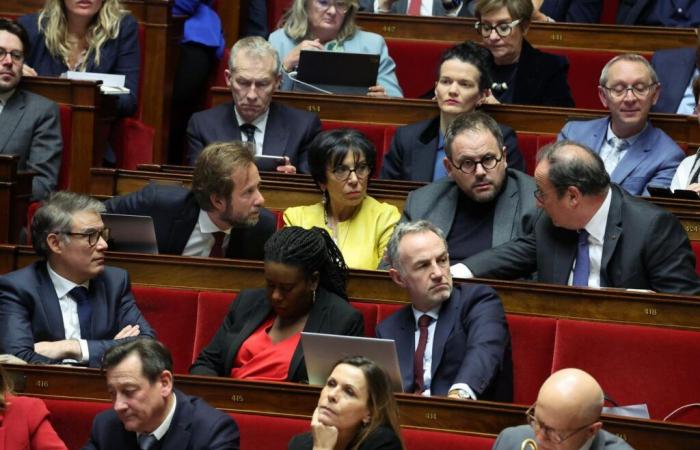The tenors of the Socialist Party have been repeating it one after the other since François Bayrou's general policy speech on Tuesday January 14: “The account is not there. » Debate on Thursday January 16, the motion of censure tabled by the other left-wing groups – Insoumis, communists and ecologists – has no chance of overthrowing the government in any case, since the far right has indicated that it will not vote for it , reserving himself for the budgetary discussion.
The issue is therefore internal to the left and the PS. “We will censor the government unless we have clear answers to our demands,” warned Olivier Faure, on the 8 p.m. news on TF1. The same morning, a majority of PS deputies were nevertheless against censorship. From now on, the balance of power is uncertain. “Where are the steps forward taken by several ministers in the discussions we had with them? “, summarized the group's president, Boris Vallaud, from the platform of the National Assembly.
Pension reform and the rest
However, each had taken a step towards the other on the sensitive issue of pension reform. On the one hand, François Bayrou had convinced Emmanuel Macron to reopen the debate “without any totem and without any taboo, not even retirement age”.
On the other hand, the socialists had mostly agreed to move from repeal to suspension, then to renegotiation between employers' and unions' organizations by September. “No one is disgraced by a return to the social partners”, insisted Boris Vallaud.
The compromise seemed established. Wasted effort: if the pension reform has focused attention, the PS assures that other concessions from the government have not been confirmed by the Prime Minister. First of all, give up aligning public waiting days with those of the private sector. Then, on the elimination of teaching positions. Finally, establish a lasting tax on financial transactions and high assets.
The PS weighs the pros and cons
The choice of censorship or benevolence is complex for the PS. In addition to the subjective evaluation of the compromise, an objective element pleads in favor of censorship: not appearing as the one who breaks the unity of the left.
-However, Jean-Luc Mélenchon has already warned: in the event of another dissolution of the National Assembly, La France insoumise could present candidates against all the socialists who have not voted for the motion of censure. Already, in the 2017 legislative elections, he had only agreed to support in the second round the “rebellious” PS candidates, that is to say the minority that emerged from François Hollande's majority.
If the choice of censorship is made, the PS could explain it by the vagueness left by François Bayrou on pensions: what about in the event of failure of the « conclave » between the social partners? Application of the 2023 reform, or return despite everything to a parliamentary debate?
Other arguments, conversely, plead in favor of non-censorship. The first, precisely, is to distance itself from LFI, whose image in public opinion has deteriorated due to the Mélenchonist strategy of “conflict everything” and ambiguous positions on the Israeli-Palestinian conflict since the refusal to qualify Hamas as a terrorist organization.
The good score in the European elections of Raphaël Glucksmann, founder of Place publique supported by the PS, proved that a moderate left could attract both former Mélenchonists put off by this radicalism and disappointed former Macronists. Voting for censorship would open up a competitive space for the center left, which Raphaël Glucksmann could invest in his own name or the ex-PS Bernard Cazeneuve.
A second argument for non-censorship is not to make the fate of François Bayrou depend on the concessions obtained by the RN (as in the case of Michel Barnier), but on those obtained by the PS. It remains for the socialists to obtain, as summarized by Boris Vallaud, “the advances that will be able to say about us: we have been useful to the French”. For this, there are a few hours of negotiations remaining.






